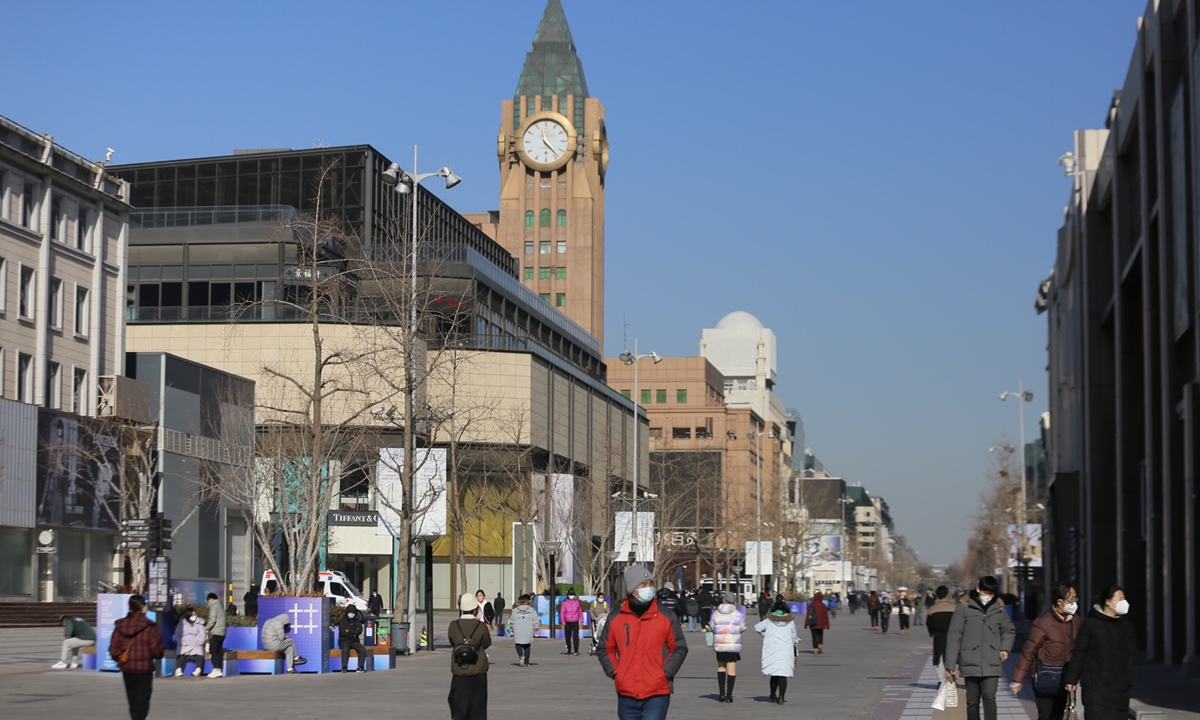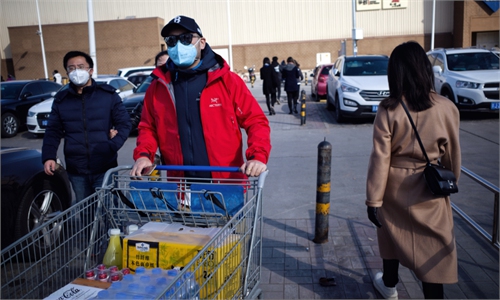
Pedestrians walk on a major avenue in Beijing on December 6, 2022. Photo: IC
Beijing municipal authorities called on local industrial and information sector companies not to stop work or pause production casually, nor should they set any upper limit on the number of workers on duty, according to an updated document rolled out by the Beijing Municipal Bureau of Economy and Information Technology on Monday.
The document reflects officials' efforts to guarantee normal operation of supply chains following recent optimization of coronavirus response measures in China, which experts described as beneficial to accelerate China's economic recovery at a time when global trade competition is heating up and domestic economic pressure is growing.
According to the document, district governments or departments in Beijing city should not set any approval mechanism for business resumption, nor should they set an upper limit for the number of on-duty workers.
In case of a virus outbreak, enterprises shall take quick action to isolate infected workers and coordinate personnel transfers. They are also directed to disinfect the operational environment, and shall not halt production at will.
In order to smooth industrial and supply chains, the document noted that companies that have special material transportation needs could apply to officials for a vehicle pass.
Officials also directed local companies to appropriately conduct coronavirus prevention work. For example, the document noted that companies should strengthen disinfection for key areas such as canteens, dormitories, toilets and elevators, as well as the surface of objects that have a high frequency of being touched such as elevator buttons and door handles.
Officials also gave guidance on how to optimize the procedure of production, including reducing unnecessary communication in companies and designating replacement employees for important posts.
A local Beijing official disclosed on Monday that following optimization of the country’s epidemic prevention policies, the number of nucleic acid test takers and the number of patients diagnosed with coronavirus infection in hospitals in Beijing have both plunged, but the number of fever patients seeking medical attention at hospitals has surged.
On Sunday, the number of fever outpatients in Beijing reached 22,000, 16 times that of a week ago.
Experts noted that at the current stage, maintaining business resumption and normal operation of industrial plants is even more important than the first quarter of 2020, when China first encountered a sudden wave of coronavirus outbreaks.
"At this point, halting plants operation will not only cause a shortage of supplies on the market, it would also mean disruption of supply chains and logistics, which might trigger a larger production crisis," Tian Yun, a veteran macro economy observer, told the Global Times on Monday.
Tian also noted that stabilizing supply chains' operation is important for the foreign trade sector, as the recent surge of the yuan is not a good thing for export, and competition is growing heated in global trade as external demand shrinks.
Global Times



